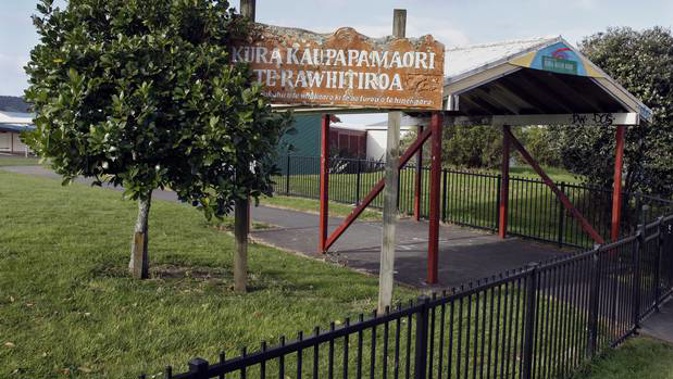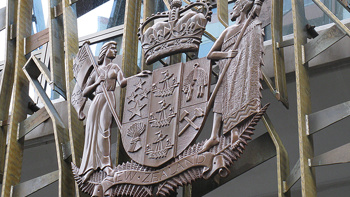
A school board chairman quit after voicing concerns over money spent on wages for family members of the principal and executive officer.
A Ministry of Education official labelled some of the hourly wages at the Whangarei Maori language school "eyebrow-raising", and auditors from Deloitte were sent in.
The ministry is now working with the school, Te Kura Kaupapa Māori o Te Rawhiti Roa, which was already on their radar with a previous intervention ending in 2013.
The board chair complained to the ministry in April 2017, outlining "manifold" concerns.
He said he was concerned about the hiring of support staff and the lack of information to the board, including on their wages.
He wrote: "It appears that some 56.5 per cent of our operations grant is spent paying salary/wages to whanau of the tumuaki [principal] and/or of the executive officer,"
"The board are denied access to full or proper financial information, cheque books, credit card statements/expenditure, salary/wage increases for [redacted]."
He quit afterwards.
His complaint led to an independent review by Deloitte.
It recommended an independent outsider take temporary control of the 175-student kura, including to review all support staff positions. The auditors also recommended salaries for support staff be cut to ensure the financial viability of the school.
The October 2017 report, released under the Official Information Act, concluded some spending appeared mismanaged, although not untoward. That included:
• Some expense reimbursements weren't authorised, or were authorised by the recipient. It wasn't clear why two employee settlements were paid outside of the pay-roll service.
• There was no evidence to show advances to staff were repaid. Cheques were written out to cash, and some didn't have necessary documentation.
• Payments totaling almost $39,000 to a company, despite another staffer employed in the role the company invoiced for. "We consider that all payments…are likely to be inappropriate payments," Deloitte wrote.
Before the audit, a ministry financial adviser marked the school as very high risk, and an official emailed a colleague to say an intervention was definitely needed.
The national body representing Māori immersion schools, Te Rūnanga Nui o Ngā Kura Kaupapa Māori o Aotearoa (TRN), opposed intervention, saying the evidence wasn't clear enough and 2016 accounts showed continued improvement.
TRN agreed the amount of operation money used to pay staff needed to be addressed, but said if this was done too quickly it could lead to personal grievance claims.
Deloitte reviewed spending from 2013 to June 2017. The school had improved student learning, it found, "but continues to struggle with financial procedures, management and managing conflicts of interest".
"Significant improvements in cash management are necessary…almost half of the yearly operational grants are being utilised for support staff salaries, many of whom are related parties to the principal."
The school had 18 teachers in 2017, none of whom were what it called "related parties" - it did not specify the relationships - and whose salaries are paid by the ministry. Schools can hire extra support staff and pay them from their operations grant.
Rawhitiroa had 19 support staff in 2017, with five relating to Kapa Haka tutoring. Other roles were office staff, teacher aides and transport drivers.
Salaries of "related parties" were compared to those received by other staff, but this detail was redacted.
It included a family tree-style diagram with the principal at the top, and a number of staff underneath with detail on how they were connected. The information was redacted.
Emails between ministry staff in December 2016 show one flagged "surprising" hourly rates paid to a teacher aide and administrator. The rates were redacted.
The auditors found 32 cheques and two cash withdrawals totaling $34,000 last year. "We noted this was unusual as vendors are generally paid through Education Services or direct debited," the report states.
Tumuaki Evelyn Henare, who has led the school since June 2013, declined to comment, but indicated TRN would. They could not be contacted by deadline.
Katrina Casey, the ministry's deputy secretary for sector enablement and support, said a limited statutory manager was in place at the kura between 2010 and 2013. A chartered accountant was provided by the ministry in 2015 to work with the board.
"We are working collaboratively with the kura, the NZ School Trustees Association and Te Rūnanga Nui o Ngā Kura Kaupapa Māori o Aotearoa to address the issues raised in the Deloittes report. In terms of future action, all options remain open at this stage."
A recent Office of the Auditor-General report highlighted spending at a handful of schools, including overseas travel and gifts for principals including a ride-on mower. The Herald on Sunday last month revealed Blockhouse Bay Intermediate spent $19,000 to send 12 teachers to the Cook Islands.
Take your Radio, Podcasts and Music with you









